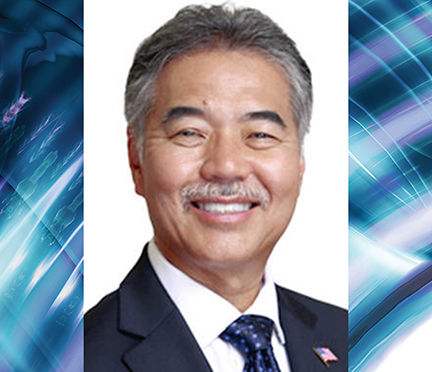LIHUE — Last week, Gov. David Ige officially vetoed 13 bills that were passed during the 2017 legislative session, including one that takes away lifeguards’ protection against lawsuits. “The attorney general has been working directly with the counties to make
LIHUE — Last week, Gov. David Ige officially vetoed 13 bills that were passed during the 2017 legislative session, including one that takes away lifeguards’ protection against lawsuits.
“The attorney general has been working directly with the counties to make sure we can continue to provide access to our beach parks,” Ige said. “The counties and state governments are working together to make sure lifeguards and ocean safety officers continue to provide protection for our citizens.”
Act 170, which protects lifeguards at every beach from lawsuits if something goes wrong while they are performing their duties, sunsetted on June 30.
In an effort to make that protection permanent, Senate Bill 562 was introduced in January at the request of the Hawaii State Association of Counties.
“Even with Ige’s veto of this flawed measure, state legislators this session allowed the limited liability protection for county lifeguards to expire on June 30,” said HSAC in a group statement. “This unconscionable move now leaves our lifeguards vulnerable to frivolous lawsuits.”
As SB 562 went through the legislative process, the provision to repeal the sunset portion of the bill was removed.
“We continue to work toward a solution, and are disappointed limited lifeguard liability has sunsetted,” Ige said. “(We) are certainly looking forward to a more permanent solution regarding beach liability.”
Jimmy Tokioka, D-15, who has been working to make Act 170 permanent, said he expected the measure to be rejected.
“By the time the bill got into its final form in the House, I knew that the bill would be vetoed by the governor,” he said. “Unfortunately, we are sending the wrong message to our lifeguards by not protecting them while they are doing their best to protect everyone at the beach.”
The bill now only protects county lifeguards who work at state beaches.
HSAC said it will work with Hawaii lawmakers in the next session to ensure lifeguards get legal protection.
“Act 170 was at one time seen as a prerequisite in order for the counties to agree to take on the exposure of having county lifeguards working at state beach parks,” said Dr. Monty Downs, president of the Kauai Lifeguard Association. “Times have changed and thankfully this prerequisite no longer applies. The counties have figured out to do the right thing and to continue with their lifeguards covering these state parks despite the loss of Act 170.”
In May, Mayor Bernard Carvalho Jr. said county lifeguards will continue to protect beachgoers despite the possibility of being open to lawsuits.
“Although the outcome of the legislative session is disappointing, the county will continue to support its lifeguards,” he said. “Our county lifeguards are a great asset and care about protecting the lives of our residents, visitors and beachgoers. The county is proud of their work and fully stands behind these brave first responders.”
House Judiciary Chair, Rep. Scott Nishimoto, said the immunity wasn’t fair to other first responders, like firefighters, police officers or EMTs, who don’t have that protection.
Another concern was taking away a person’s right to sue if something negligent happened.
Ige said he doesn’t agree with the measure because “it requires the attorney general to defend the counties for any civil action or proceeding, without exception.”
He also said the attorney general will defend civil actions against lifeguards if they arise.
As it stands, the bill requires the attorney general to defend any civil action or proceeding brought in any court against a county, based on any negligent or wrongful act or omission of a lifeguard who provides lifeguard services at a state beach park.
For Downs, that part is key.
“If a lifeguard’s performance is below his or her profession’s standard of care and conduct, he/she will not be defended by the attorney general and the lifeguard would have to get a defense lawyer from elsewhere,” he said.
Before lifeguards were stationed at Kee, there were regular drownings there, Downs said.
“Mainly because people would be snorkeling in this lovely lagoon and would unknowingly be pulled out to sea by the subtle rip that exits the lagoon at its western portal,” he said. “Once out of the portal they were immediately in the open and wide Pacific Ocean.”
Since the lifeguard tower has been established at Kee Beach, there have been no drownings, Downs said.
“Although I sorely miss the special honor and aloha that Act 170 bestowed on our lifeguards, I’m happy and relieved that their defense is assured should an adverse outcome take place as they carry out their beautiful, brave, sometimes dangerous, and always Kauai-protecting and life-saving work,” Downs said.
Moving forward, Tokioka said he expects the matter to be taken up next year.
“I am sure that the leadership has heard from many members in the community, especially the lifeguards, that they are not happy with the bill that was passed by the Legislature,” he said.


